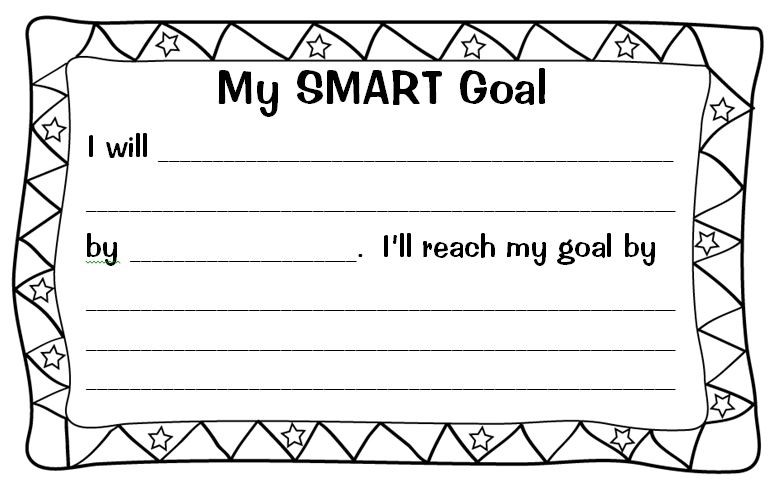Expert’s 10 Proven Ways To Boost Your Child’s Concentration and Motivation to Study

We’re essentially tackling two different problems here; the first is your fidgety child’s ability to focus and the second is your little one’s low motivation to learn. In order to successfully improve both aspects of your child’s behavior, each problem will be discussed individually and in detail.
How your child performs in school is certainly important, but what’s even more consequential is their ability to self-discipline and their drive to excel in life. By helping your child develop these important skills and strategies from a young age, you are essentially setting them on a path to success.
We’ve composed a list of 10 tips – 5 that will improve your child’s concentration and 5 that will boost your kid’s motivation to be a life-long learner. Think of this article as your mini, go-to parental guidebook. If you’ve been struggling with a hyperactive, misbehaving child then practice these points everyday and we guarantee that you will soon see a happier, brighter and more driven child. We know how difficult it can be to boost your child’s academic achievements when he/she completely lacks the ability to stay still and focused in school and has no interest to learn. Thankfully enough, there are proven ways to help your child develop a strong inner drive and valuable concentration skills.
We’ve done our research, we’ve spoken with several schoolteachers to get their advice and we’ve asked lots of parents to share some light on the issue. Without further ado, here are 10 tips from experts worldwide on how to help your child focus and stay motivated in school…
Focus-Boosting Tips
- Eliminate distractions

If your child’s learning environment is filled with distracting toys, gadgets and other objects, don’t expect them to be 100% focused on the task at hand. NewKidsCenter.com explains to us how children do not have the same ability as adults to ignore distractions. Make sure that your child has a quiet and clean room to study in, one without loud noises, electronics (unless it’s needed for homework), and/or toys. [1]
- Stop your child from multi-tasking

One of the best ways to improve focus is by clearing your brain and stopping it from going on overload. An article from Business.Time.com tells us that chronic multitasking leads to a lack of productivity and reduced concentration. [2] This makes perfect sense, because the more your brain has to handle, the less capable it becomes of fixing its attention on one particular thing.
When your child is studying and doing homework, make sure that he/she is doing only one thing at a time. This means NO to texting or playing on the iPad!
- Stick to a healthier diet

BBCGoodFood.com discusses the impact of a healthy diet on the focus and learning abilities of children. It seems like altering your child’s diet to make it healthier and more nutritional can lead to improved concentration and longer attention spans. [3]
Here’s the basic gist – to make sure that your child receives all the necessary nutrients and vitamins that they need for optimal brain function, give them small, healthy meals many times throughout the day. Their meals should include: a lot of fruits and vegetables, plenty of water, foods with lower GI (glycaemic index), foods with little or no refined sugar and lots of foods that contain omega-3 fatty acids (tuna, salmon, etc.).
- Keep it positive

WebMD.com released an article just last month showing the relationship between parental criticism and increased ADHD symptoms in kids. The article discusses the results of a study, which monitored the symptoms of 388 ADHD children and their parents over a course of 3 years. Kids who received consistent criticism from their parents had their ADHD symptoms worsen rather than improved overtime. So the take-home message is to keep it positive at home if you want your child to have better focus and concentration skills. Rather than criticizing your child too much, reward them when they do finish a task properly. [4]
- Find ways to reduce stress

Our kids are more stressed than we may think. It’s easy to assume otherwise because let’s face it – they get everything pretty much done for them, and all they really have to worry about is chores and a bit of homework. But a lot of the times, they suffer from unconscious anxiety. This shadow of stress stays on their shoulders and encourages unfocused behavior and mood swings. Your teen, for instance, could feel extremely pressured to get along with the popular group. This buildup of anxiety can lead to inappropriate behavior at school, the inability to stay focused in class and even depression. Or perhaps your child experiences daily anxiety from not being able to meet your grand expectations as a parent. They are told to be bigger and better; they are told that their grades reflect on who they are and what their futures will look like.
To help our young ones cope with stress, there are a few things you could encourage, such as exercise, meditation and prioritizing sleep. Here’s what the experts have to say about it…
- Exercise
- Exercise works to reduce stress for both children and adults. Disa Hatfield, a kinesiology professor from the University of Rhode Island says, “children who are more active throughout their day have a better hormonal response to an acute stressful situation.” [5]
So letting Johnny join the basketball team may not be such a bad decision after all. You may think that signing up your child to join a sports team reduces study time, but in actuality you’re strengthening your child’s emotional state and ability to respond to stress in the long-term.
- Meditation
- Amazingly enough, meditation can be an equally as effective stress-buster for kids as well as adults. Danny Dreyer, a well-known Tai Chi practitioner and respected author, says that meditation works to cut anxiety because it encourages focus on your physical state. RealSimple.com has offered a unique way of teaching your child how to meditate – “Explain it by asking your child to think of a snow globe. When you shake it, you can’t see clearly, which is what happens to us when our mind is flooded with thoughts like “My best friend hates me.” When we pause, the feelings settle (like the snow in the globe) and we can focus.” [6]
- Prioritizing Sleep
- If your teen is working and studying ’till morning, take this as a sign that they’re too busy for their own good. Lack of sleep leads to increased stress and mood swings throughout the day, which can interfere with learning at school.Your first step could be to help your child organize their homework schedule more efficiently, so that they have more time in evening to relax and unwind.
Lynn Lyons, a famous author and psychotherapist who specializes in anxiety says that turning off all electronics a few hours prior to sleep may lead to better quality sleep and improved mood. So make sure that your child isn’t falling asleep with the TV on or playing video games right before bed. [7]
Motivation-Boosting Tips
- Establish Goal-Setting

The Parent Institute is America’s #1 education source for parents. In one of their guides, they explain the importance of goal setting and how it can be one of the best ways of encouraging your child to achieve success.[8] Sit down with your child and write down 3 clear, realistic goals related to their academic performance. Measure their progress overtime in a way that they understand so that they can attain a sense of achievement.
- Get organized!

A quick way to boost your child’s self-motivation is by helping them get more organized. Scholastic.com tells us that by improving your child’s organizational skills, you will make them feel more in control of their work and overall life. [9] This will boost their confidence and motivation to perform better both academically and at home. You can help them get more organized by creating a set homework schedule and by giving them folders to arrange their papers.
- Set clear expectations

You scream at your child for sleeping too late, for skipping out on the vegetables during dinner, for being lazy at school. Sometimes, your kids aren’t doing things the right way because you haven’t given them a coherent set of instructions. It would be unfair of you to not lay out clear expectations for your kids, and yet expect them to achieve them.
Be clear about bedtime rules and homework rules so that they know exactly what to do. By successfully achieving your expectations, your child will feel better about him/herself and continue striving for success.
An article from TheJourneyToExcellence.org.uk discusses the development of self-motivation in kids. [10] Children are oftentimes not driven to perform better because they feel unexpected to do so. If you set higher expectations for your unmotivated child, you are giving them more direction. In turn, they will feel like it is possible to reach new heights through hard work.
- Show them that you’re a life-long learner too

How many times are we told that children learn by copying exactly what we do! If your child doesn’t get excited about learning new things, is never driven to do better and always seems bored, maybe it’s because you’re the exact same way. So before criticizing your child for being unmotivated, reflect on yourself and prove to your children that you’re an inspired, life-long learner yourself.
Carrie Shrier, an Early Childhood professor from Michigan State University reminds us how important it is to be aware of our own actions when raising children. They copy how you talk to others, how you treat yourself, and how you view life… so let’s use their copycat behavior for the better. [11]
Whenever you learn something new from reading an article, speaking with a co-worker, or listening to a podcast, share it excitedly with your children. Show them that you are passionate about learning and that you’re motivated to be a more educated citizen of the world!
- Use nootropic supplements

An effective and proven way to improve your child’s attention issues, low motivation, and mood swings is by using natural supplements. More and more parents are becoming aware of nootropic supplements or supplements that boost brainpower. There are lots of different types of nootropic supplements and some have been shown to be effective for children.
If your child has serious ADD/ADHD symptoms then you may have considered taking them to see a psychiatrist, who will most likely treat them using prescription medications such as Ritalin or Adderall. However, we do know of a lot of parents who don’t feel quite ready to stuff their young kids full of drugs and medications out of concern of side effects. Fortunately, there are natural nootropic supplements that can help your kids regain focus and a positive mood without causing adverse side effects. Leading scientists around the nation recommend these 2 nootropics as the best supplements to give your kids for better mental performance…
- L-Theanine
L-Theanine is a supplement given to reduce anxiety and mood swings in children. It helps with the production of serotonin, which leads to better mood and increases alpha brain waves, which relaxes our cognitive state.
PureNootropics.net, a leading nootropics website, tells us that L-Theanine is a safe supplement to take for both children and adults. [12] The substance is found naturally in green tea, which is why it’s regarded as one the best and safest treatments for anxiety. By calming brain activity, focus and concentration are naturally enhanced.
- Phosphatidylserine
Researchers posted in the Journal of Human Nutrition and Dietetics a study showing the benefits of phosphatidylserine administration on children with ADHD. [13] Children who were given phosphatidylserine on a daily basis had better memory and attention spans than those in the placebo group. Phosphatidylserine is a naturally present phospholipid that our brains need to maintain optimal function. It targets damaged brain cells and repairs them, it provides antioxidant protection and it improves nerve cell communication.
All these three ingredients can be found in our Editors’ top choice supplement for kids, Lumonol Prep. If you want to give your kids a safe, well-formulated supplement with clinically researched ingredients then we’re confident that Lumonol Prep is your best. You can checkout our review of Lumonol Prep here or you can head over to Lumonol’s official website here.

